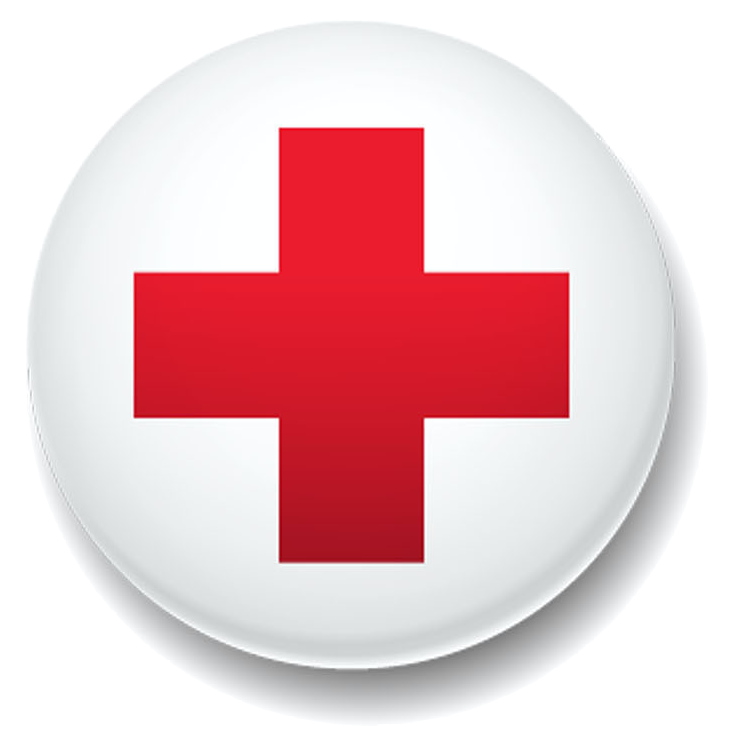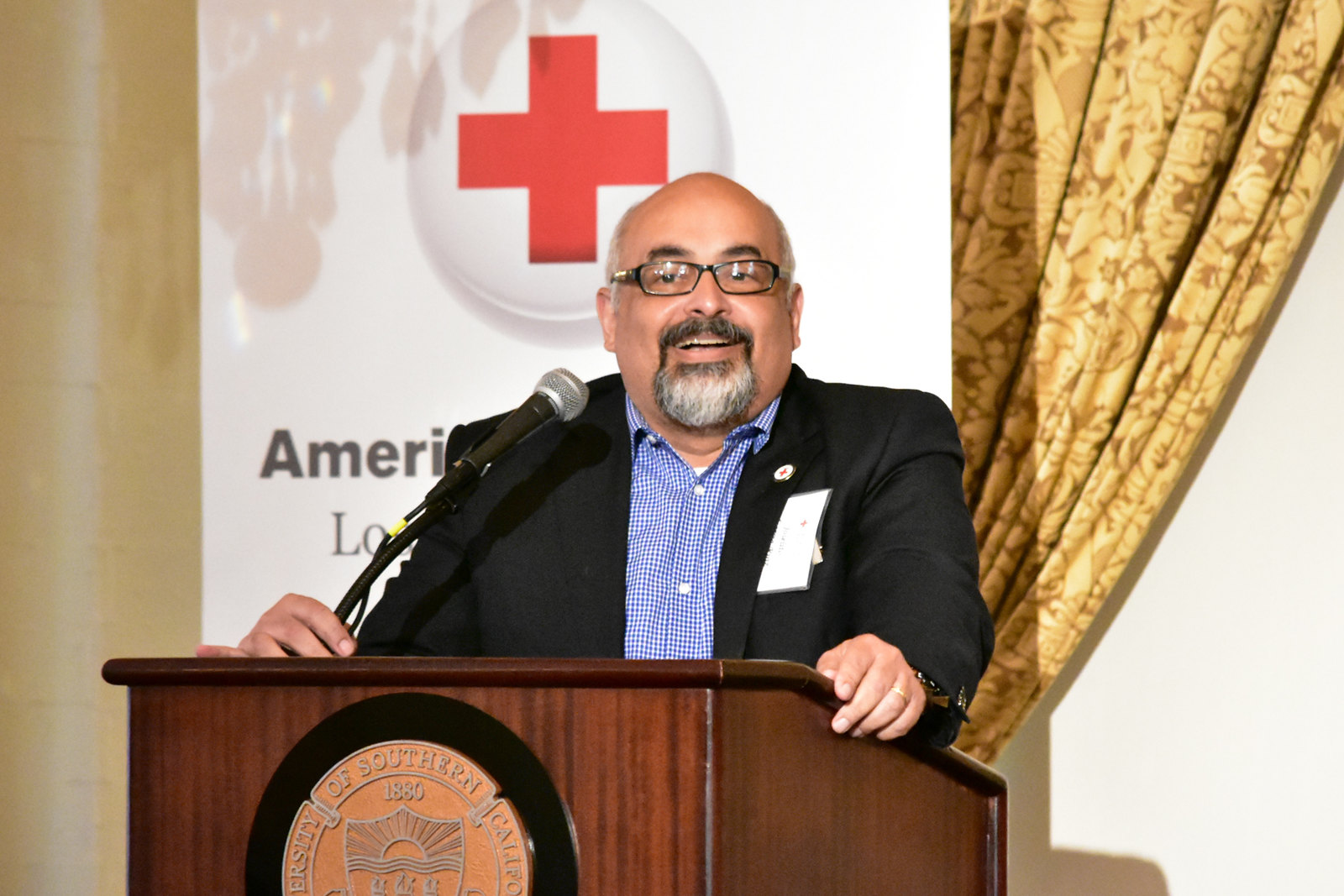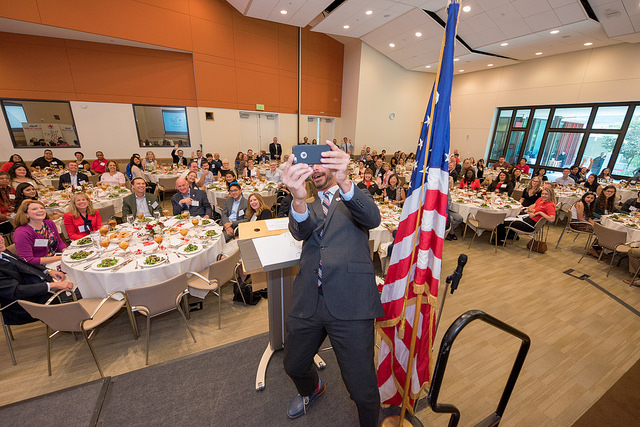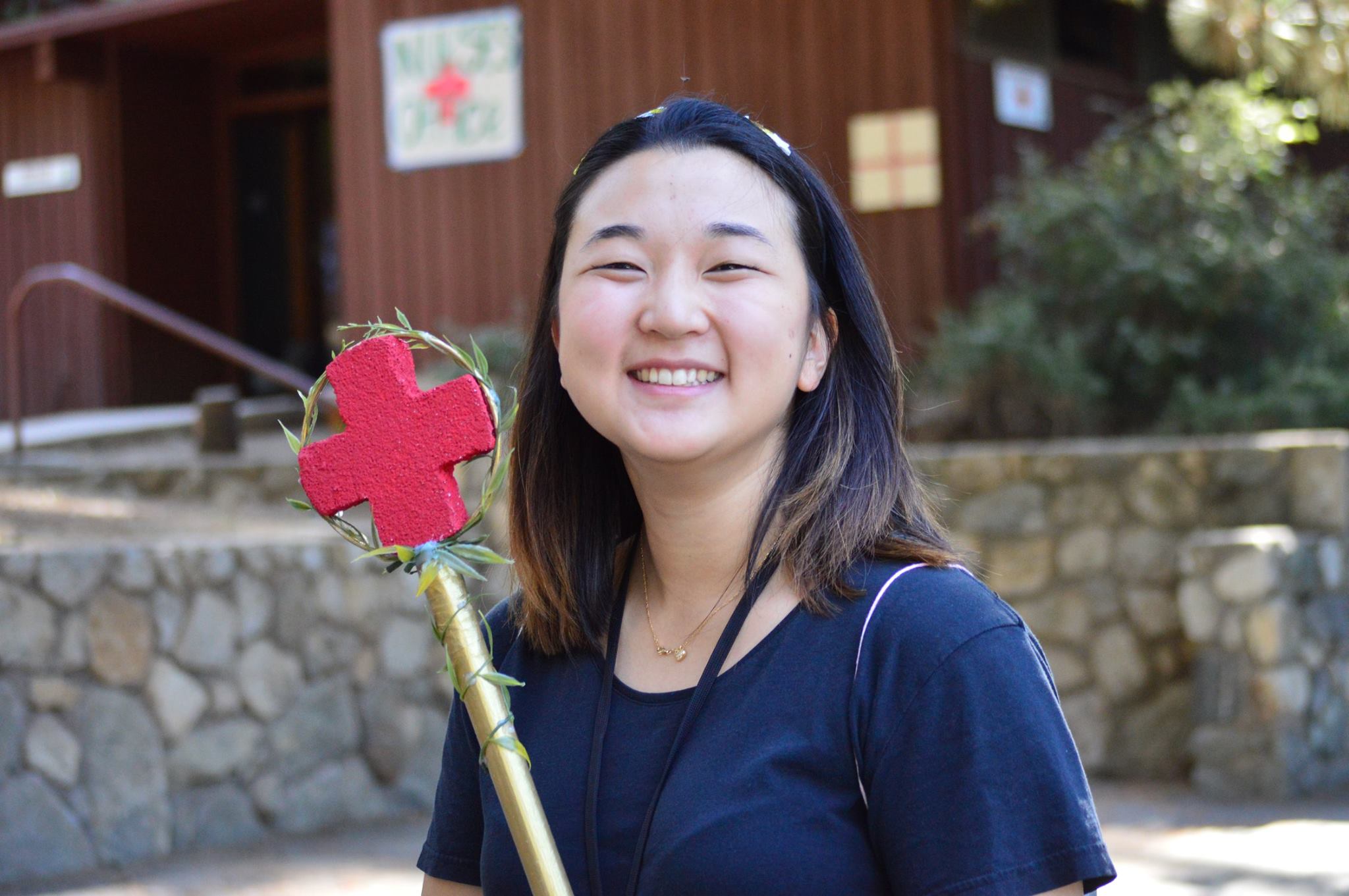Red Cross Communications Lead Specialist Marilyn Jimenez interviewed Regional Disaster Officer Joselito Garcia-Ruiz about his pending retirement, his career at the Red Cross and stories that stuck with him throughout his 30 years at the organization. Interview has been condensed for clarity and is also available in Spanish.
Good afternoon, Joselito. Thank you for taking a moment to share your American Red Cross experience with us. First, how long have you been with the Red Cross?
As an employee, almost 30 years of service. I started in 1987 at the American Red Cross in Puerto Rico, as the assistant director of volunteers and human resources. And then I left the organization and returned in 1990 to work for the Red Cross in Worcester, MA, as the assistant director of the emergency and disaster program.
What positions have you held here in Los Angeles?
Well, to continue with my career path, after Worcester I returned to Puerto Rico with the Red Cross for the national office as a disaster specialist for the Caribbean. My job covered Puerto Rico and the Virgin Islands, and I also worked in the field offices on the different military bases in Puerto Rico. I held that position for five years and then became the disaster director for the Puerto Rico chapter until 2000.
In 2000, I fulfilled a dream, when I became an international delegate with the American Red Cross for my beloved Mexico, where I spent a year and a half as the head of the American Red Cross delegation. From there, I parted from the American Red Cross for a year and almost six months and took a mission with the International Federation of the Red Cross in Central America, stationed in El Salvador. I then returned to the American Red Cross in Worcester as the readiness officer for New England.
During that time, I supported 136 Red Cross chapters from New York to Maine as the readiness officer. After two years in that position, I became the disaster and emergency director for the Boston chapter, and I stayed in that position for about three and a half years. I then moved on to Fort Worth as the disaster and emergency director.
After almost two years, I returned to the Federation, but this time on sabbatical from my Texas position to be the program coordinator of the International Federation in Zimbabwe for a year.
When I returned from that mission and after reorganization within the Red Cross, my position was closed in Fort Worth, so I went to Raleigh, NC, as the new disaster program director. I was in Raleigh for two years, before I came to Los Angeles as the regional disaster officer, and where I have been for the last six and a half years.
That has been my 30-year trajectory with the Red Cross.
The Red Cross has taken you to many different places. Which of these has been your favorite?
I think that all places are special for me, because in each place you learn something. They each have their natural beauty and, most importantly, the beauty of the people. Within the Red Cross, what you find is family. You find yourself among colleagues, employees and volunteers; always a part of the family, of the movement.
So, each place and each country visited has been a learning opportunity that I carry in my memory. I do not have a favorite place, although there is no place like home.
How many disaster relief operations have you worked in these 30 years?
Well, I’ve been with the organization for 30 years as an employee. However, I started a little earlier as a volunteer in 1985. I think my first big disaster with the Red Cross was as a volunteer here in Puerto Rico — a landslide and an avalanche had buried more than 87 people.
After responding to many disasters in Puerto Rico, I started deploying off the island. Disasters in New Jersey, New York, Oklahoma, Georgia, Alabama; floods, tornadoes, hurricanes, not to mention Hurricane Andrew and many more.
In total, I have worked more than 50 disaster operations with the American Red Cross.
Wow, that’s a lot! Changing the topic to something we focus on a lot: disaster preparedness. What disaster preparedness tip do you wish everyone would follow?
I believe that being part of the Red Cross, preparedness is vital. You have to walk the talk, right? Preparedness begins with each individual, and it begins at home. The three steps of what we preach in disaster preparedness – to be informed, to be prepared and to know what the risks are where you live, as well as where you work.
Have a plan for you and your family that includes the emergency items that you may need, and more importantly, that helps you and your family respond to the type of disaster in your area. In Los Angeles, we must know how to respond to earthquakes and wildfires. And for everyone [in the country] to home fires.
Most importantly, know how to prevent those disasters. This is part of the preparedness planning — keeping your family members informed and having a phone tree, so when something happens, you can notify and inform others. You will need to be able to survive for at least three to seven days on your own. Here in Los Angeles, we advise preparing to survive on our own for up to 14 days.
What is the cause for most DAT (Disaster Action Team) calls? And what do you want people to stop doing to help prevent the emergencies you see the most?
Ninety percent of the calls that the Disaster Action Team receives in Los Angeles and nationwide are home fires. Reports from fire departments say that most of these fires are accidents.
Accidents are caused by carelessness of human beings. Mistakes we make by leaving the kitchen unattended while we are cooking, by leaving electronics unattended or by connecting too many devices into a single outlet. We leave heaters and candles unattended. All of these mistakes can cause an accident like a home fire.
Like any accident, it can be prevented.
Prevention means educating the community so that they are aware. To develop that culture of preparedness and mitigation to be able to prevent fires and property loss. The most important thing is to prevent loss of life, which unfortunately still happens in the 21st century. This type of accident continues to happen, and it is something that is totally preventable.
Now that we are approaching the winter and autumn seasons, these tips about heaters and candles are especially important. Smoke detectors are also very important, and the next question is also an important one.
Let’s set the record straight. Who really installed the most smoke detectors? You or [former Red Cross LA CEO] Jarrett Barrios?
Well, my great friend, ex-boss and great colleague claims he installed more. He claims he installed 106 alarms. I don’t know, but the public record for the entire Red Cross community in Los Angeles shows that I installed the most smoke alarms. Not just on one occasion, on several occasions; he couldn’t match my installations.
What has been your most memorable moment with the Red Cross? What is your Mission Moment?
There have been many. However, the one that always remains not only in my mind but also in my heart happened when I was a volunteer during my first great response in 1989 — when Hurricane Hugo came through Puerto Rico.
It affected not only the east coast of Puerto Rico, but also its two islands — the municipalities of Culebra and Vieques. They sent me the next day, as soon as the winds stopped to conduct census and damage assessment, as we called it at that time.
I was transported by a police helicopter. They were supposed to take me back the next day, but his never happened. I returned after eight days because I stayed to help coordinate and represent the Red Cross on the island of Vieques, which had 98 percent of its infrastructure, its homes, destroyed or hit with major damage. There was total devastation on an island that had a population at that time of around 12,000 people.
I began to coordinate the census and damage assessment, which meant coordinating two shelters at two local schools and helping the municipality. It was long hours.
The volunteers, four from the Red Cross and several locals would meet around 9 or 10 at night in front of the Vieques mayor’s office. That was when we would have coffee and plan for the next day.
An American man arrived. Remembering this story makes my hair stand on end. He was from New England, and he looked like a sailor from old photos and movies. He had white hair and a white beard. He was strong looking and older. He came up to me and said, “Are you from the Red Cross?” And I say “yes.”
He spoke a little bit of Spanish and I asked, “How can I help you?” I saw he was distressed, because he was one of the disaster victims.
“I would like to send a message to my daughter,” he said. And immediately I looked for paper and pencil.
I took down all his information and asked, “What do you want to tell your daughter?” He paused and started crying.
He was so vulnerable in that moment.
After a pause, he said, “Just tell her that I am fine, that I am alive.” He kept crying and not only was his vulnerability on full display, but soon, mine was as well.
I was young then, and I started to cry like a small child with him. There in that space, but at that same moment, we sent the message. A response from his daughter arrived two days later, and we were able to deliver the message back to him.
Receiving the message was emotional for him. At that time, telephone service was difficult to get on the island, but a team had arrived and had put up a provisional telephone line. I was able to take him there, so he could call his daughter in Vermont. At that time in Puerto Rico, it was an international call to call the mainland U.S].
That is the experience the Red Cross gives you. It’s about being part of this great humanitarian movement. I take that with me. That memory can’t be erased.
What is your proudest achievement from your career at the Red Cross?
That’s an important question. For one, I’m proud I have been able to continue the legacy of humanity, of solidarity, of helping others. To see so many staff and volunteers I have been able to help in their development through training, through advice, coaching and watching how they continue in the organization or have been promoted. That has been the greatest point of pride for me. I am able to leave a legacy through the people who have continued within the organization — knowing you were at some point in their life, giving them that advice and being part of their development.
What is something you would to like to see change within the organization and something that you would like to remain the same?
I believe that the fundamental principles, which are the basis of what we do, must remain the same. They are untouchable. We should be careful because as changes occur, politically and socially, we must always try to connect back to these principles in some way.
The other thing that perhaps we should help and promote is for the organization to be more inclusive. I know that great effort has been made. I also understand there are situations like the one we are experiencing now, a national emergency with the pandemic and multiple disasters, that do not allow active, democratic participation for the organization to move forward. All decisions come from the top down, rather than grassroots, from the people on the ground up.
That’s understandable, but work must be done to develop an organization that allows the greater participation of all its members in decision-making and in the continuous improvement of the organization.
What is one piece of advice you would give to someone new, who is just starting with the Red Cross?
You must evaluate where your passions lie. If your passion, what you enjoy the most, is helping people, those who are in need or experiencing a tragedy regardless of where they come from or in what situation they are in, then you are in the right place. The Red Cross is the organization; it is the mechanism that can help you develop your great potential in the humanitarian area.
If you are not interested in this line of work nor helping people in disaster situations, then you need to find another line of work.





